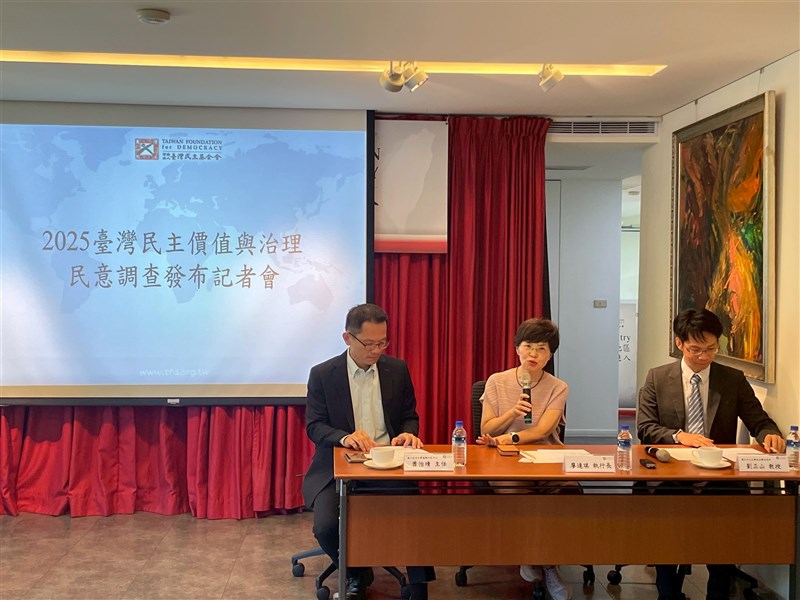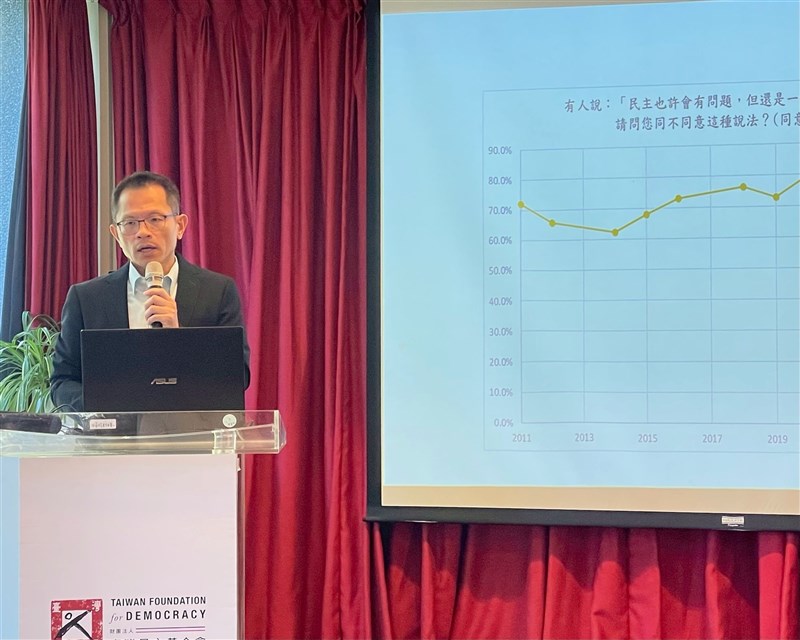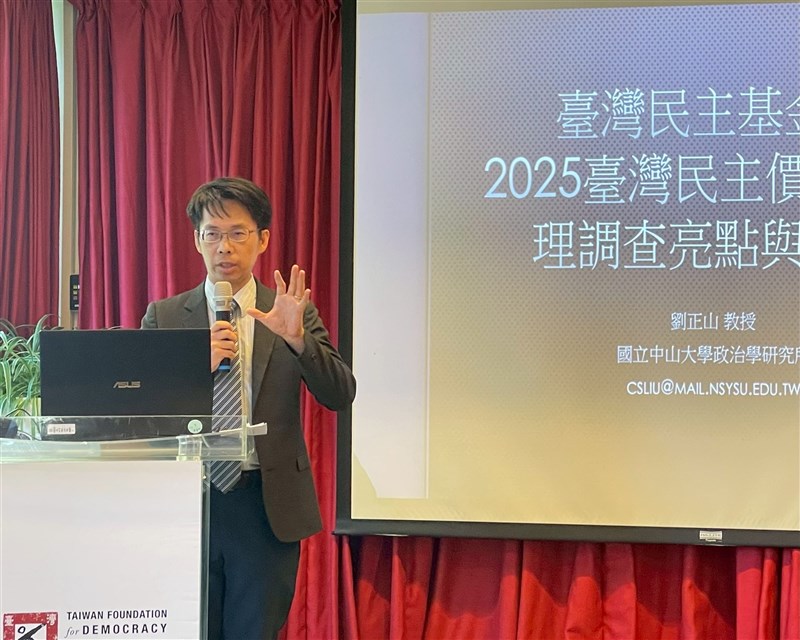
Taipei, Aug. 28 (CNA) A majority of Taiwanese prefer a Legislature led by the opposition and support the existing recall system to remove elected representatives or officials, according to a poll released by the Taiwan Foundation for Democracy (TFD) Thursday.
At a news conference in Taipei, Hsiao Yi-ching (蕭怡靖), head of the Election Study Center at National Chengchi University, said the results of the polls were in line with the recently concluded public votes aimed at ousting most directly elected lawmakers from the opposition Kuomintang (KMT).
Polls conducted by Hsiao's institute found that 50.5 percent of Taiwanese support using the recall system to remove elected representatives or officials they deem incompetent, while 38.4 percent view it as prone to being used as a "tool for political revenge."
At the same time, more than 60 percent of Taiwanese surveyed agreed that democratic checks and balances work best when the president and the largest group of lawmakers in the Legislature are from different parties, with only 24.5 percent disagreeing.
"Taiwanese believe the executive branch should be kept in check by the Legislature," Hsiao said, adding that the outcome of the recent recall efforts, which ended in a clean sweep for the KMT, was therefore "not surprising."

The unprecedented recall bid marked the culmination of a stand-off between the Democratic Progressive Party (DPP) government and the Legislature, which has been controlled by the KMT and the smaller Taiwan People's Party since President Lai Ching-te (賴清德) took office in May 2024.
Frank Liu (劉正山), a political science professor at National Sun Yat-sen University, said at the same event that the poll findings reflect public expectations for the Legislature to serve as a check on the executive.
However, Liu noted that the findings also showed that the "partisan divide," fueled by the months-long DPP-backed recall campaign and the KMT's countermeasures, had "further deepened societal fissures."

To get out of this bind, Hsiao said, political negotiations between the ruling and opposition parties were the only solution, stressing that democratic politics depends not only on public votes -- typically decided by a single majority -- but also on negotiations to build consensus among stakeholders.
Liu, meanwhile, called for more transparency from the government.
He noted that few ideological issues are currently on the table, with most debates focusing on public policies that can be discussed based on facts, such as U.S. tariff measures and nuclear power.
Open discussion and thorough policy communication are important, especially for young voters, Liu added.
Regardless of the political split, TFD President Liao Da-chi (廖達琪) highlighted the "overwhelming" support for democracy in Taiwan, noting that nearly 80 percent of 1,218 respondents in the survey agreed that, despite many problems, democracy remains the best system of government.
Support for democracy among Taiwanese is both bipartisan and cross-generational, Liao said, citing the polls conducted from June 24-29, adding that this was particularly "precious" amid global democratic backsliding.
The TFD is a nonprofit organization funded by Taiwan's Ministry of Foreign Affairs to promote democracy in the region and is typically headed up by legislative speakers.
-
Politics
Taiwan signs trade deal with U.S. to cut tariffs, open markets (update)
02/13/2026 10:57 AM -
Business
U.S. dollar up in Taipei trading
02/13/2026 10:29 AM -
Society
Taiwan headline news
02/13/2026 10:15 AM -
Politics
Taiwan signs trade deal with U.S. to cut tariffs, open markets
02/13/2026 07:34 AM -
Culture
How a site of White Terror persecution became a human rights venue
02/12/2026 08:24 PM